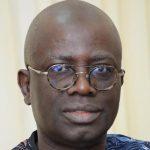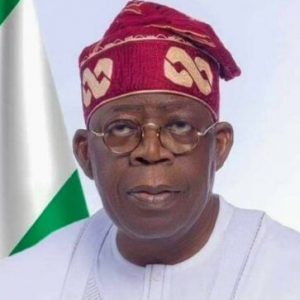In the allegory of the elusive past of Africa, the young traveler was reported to have asked the old man, “What happened to the Black people of Sumer….!?? For ancient records have it that the people of Sumer were Black. What happened to them?”* *” Aaaaahhhhh!!!!” sighed the Old man, “They lost their history, and they died.”*
“Iró ni won ñpa, Ifa ò lèe pa run. Àtélewó la bá ìlà, a kò mo eni tí ó kó”
Translation: It is a lie, Ifa cannot lapse into extinction. After all, no one knows who imprinted the marks we bear on our palms.
After the Ekiti parapo war, the warlords and the warriors repaired to their various native communities. One of those warlords was Ishola Fabunmi, my predecessor (four generations removed) as the Balogun of Okemesi. My forefather, Dada Akoja was his confidant and deputy of the Ekiti parapo contingent in the war against Ibadan imperialism. In history, returning war heroes constituted an implicit threat to the incumbent holder of the throne. In the case of Fabunmi, the threat was magnified by the fact that he was equally a prince.
Hubris is the second name of hot-headed warlords, and so, my predecessor requested the reigning monarch to vacate the throne for him at the pain of being forcefully removed. The latter (who actually was his uncle) readily spurned the demand. In the ensuing battle between Uncle and Nephew, Fabunmi was emboldened by the prevalent circumstances in which fellow warlords had pledged their comradeship and loyalty to him. But one of them, Dada, apparently, saw the future and warned him of the probability that his war confederates would not hold fast to their pledge. He proved prescient. On D Day, the confederates turned their cannons not on the king but on the homestead of Fabunmi. Defeated and wounded, the abortive coup maker took to his heels
Killer mobs pursued and caught up with him but his conscientious friend, Dada, stood against the mob and paved the way for his escape. Burning with anger, the mob turned on the enabler and burnt down his compound and forced him to embark on exile. The community soon developed remorse and went to plead with him to return home. He accepted their entreaties with the caveat that his descendants must neither accept the offer of kingship nor dedicated a traditional title in the town.
In this regard, the Balogun title that I hold is meritorious and reserved for the most distinguished warrior of the era, not a dedicated traditional chieftaincy title. Beyond the constraint of this pedigree, I have no interest whatsoever in becoming a monarch (partly for the same objection the Awujale exercised). For that matter, It is also the reason I would not be a member of any secret cult and I say this without being necessarily judgemental but more because I’m somewhat a control freak.
In the event, the honourable step to take is to back off to your comfort zone and accept your limitations.
After a lifelong exploitation of the attendant sumptuous privilege, the pomp and pageantry, the perquisites and perks, and generally living large on the spoils of the land, it is opportunistic of the Awujale to renounce the enabling platform at the twilight of his reign. The moment he resolved to distance himself from the traditional regulations of his throne, honesty of purpose demands he voluntarily abdicate the throne. Barring which, he would share the same sad legacy of Henry the 8th. To the contrary, the nearer he got to his grave, the more strident he became in proclaiming his privilege to eat his cake and have it.
In a barrage of spiteful ridicule of the traditional leadership institution and wanton display of arrogance, these are the representative samples of Awujale’s outbursts. They are of a kind that no traditional institution can long survive. In a fit of wanton self-adulation, Awujale launched a tirade
“Let me start by making it clear that I, as the Awujale of Ijebuland, reserve the exclusive right and prerogative, to the exclusion of anybody – be it Oba or chief, the control over tradition and customs in Ijebuland. Once I say this is what it is, that is what it is. Nobody can challenge me.”
Yet, according to Richard Sklar and consistent with universal scholarship on the Yoruba, ‘the powers of the Yoruba kings were regulated by custom and limited institutionally by countervailing organs of the state. Unlike the Northern emirates, the Yoruba monarchies were constitutional rather than despotic; fear of authority does not appear to have been a normally important factor in tribal government. Great kings lived in the midst of their people, and lesser chiefs, like the titled lineage heads who controlled the election of kings, were necessarily close to the people. Government was a communal interest, and at some point,t every adult had a say.”
On Ipebi (ritual seclusion)
Awujale said: What we did in seclusion is nothing secret. We were just there making merry and enjoying ourselves while relatives, friends, and other well-wishers came around to visit and rejoice with the king.
Question: What is the role of traditionalists in the crowning of an Oba in Ijebuland, especially in the behind-the-scenes ceremonies or rites leading to the coronation?
Awujale mocked: What rites are you referring to? I cannot recall any rite that was done behind the scenes. Let them come and tell me. It is all lies. Nothing like that. They even tell you that they give the heart of a deceased oba to the new one to eat! They are crazy. Nothing like that.
Question: Are you saying as the Awujale of Ijebuland, you don’t perform certain traditional rites on behalf of your town and people?
Awujale taunted: Which rites? What are those rites? Do you know those rites, because I don’t know of any? If you can say this rite or that rite, maybe I will understand.
Question: Are you saying you don’t intercede and or pray on behalf of your subjects?
Awujale retorted: That is not part of my function. The churches and the mosques are there to do that. Intercede? What sort of intercession?. Spiritual leader of what or where? I don’t know about that. It is all rubbish. People are just talking about what they don’t know about. I have been on the throne for sixty years, and I have never been tired because that is my job. Otherwise, I have to quit the place.
Can anyone imagine a more hostile witness in the adjudication over whether or not the institution of Obaship should be retained?. What emerges from this arrogance and less than candid testimonies is the profile of a significant echo chamber of colonialism, steeped in hypocritical self-denial and self-hating ideologue of neocolonialism. It is on account of personalities like him and the damage they have wreaked that prompted Professor Bolaji Idowu, pioneering scholar on Yoruba culture and tradition, to admonish that “We must begin to think deeply about our indigenous philosophical traditions, history and culture”.
Jean-Paul Sartre calls it ‘the sinister strategy of erasing native identities in which the aim is to supplant Indigenous culture with the colonizer’s own, leaving the population in a vacuum of identity’. “
Among the Yoruba, there is indeed something of a paradox in the contradiction between the subconscious individual belief in the relevance of Ifa to the resolution of any resurgence of crisis in human experience and a conscious social and hypocritical disavowal of its reality. It is a paradox that is borne out in the ambiguity of individual and private accommodation of Ifa by those who simultaneously profess Christianity and Islam. Newell S. Booth observed that whilst 95% of the Yoruba professed Islam or Christianity, the answer to the question of what percentage practice the traditional religion was equally 95%!.
It is noteworthy, that as African indigenous religion (the core element and organising principle of Yoruba tradition) was steadily losing adherence, legitimacy and acceptance at home, a contrary trend ensued in the diaspora especially in South America where ‘African descendants in Brazil adopted the Yoruba religious culture (as Afro-Brazilian) and built an all embracing African identity around its universal character’.
The phenomenon prompted the remark by Robin Horton on a contemporary ‘Ifa distinctiveness being dramatically revealed, not in Yorubaland itself, but in the Afro- American societies of Brazil’. In Cuba, Babalawos have been researchers and archivists of written Ifá materials continuously since the late 1800s until today (Okediji).There is the intriguing spectacle of the incorporation of Orisha ministries into the chaplaincies of the U.S. Army and the Federal Bureau of Prisons.
The admonition is rife that while foreigners are researching, documenting and teaching our culture, in institutions outside our shores, we are busy at home demeaning, jettitioning, demonizing, and disregarding the beauty, richness and unique guiding philosophical thoughts.
As James O’Connell noted, ‘unfortunately, this kind of attitude tends to take root among literate opinion-makers in the developing countries, who, having internalised an inferiority complex, often are no better than outsiders in interpreting the complexities of their own situation”. Typical of this observation are the following reflections by African scholars
In the understanding of the negritude poet and founding father of Senegal, Leopold Senghor proposed that Africans are incapable of analytic reasoning. He believed that “the reason of classical Europe is analytic through utilisation, the reason of the African Negro is intuitive through participation.”
Of the same mould, John Mbiti proclaimed “African ideas of time concern mainly the present and the past, and have little to say about the future, which in any case is expected to go on without end”. Kwasi Wiredu was merciless in demeaning fellow Africans whom he characterized as “intuitive; essentially…unscientific and unanalytical…
Abosede Emmanuel contrasted this self-abnegating disposition to the detached scholarly disposition of (The Reverend Samuel Johnson, The Reverend E Lijadu, Bishop James Johnson, Dr J.O Lucas and Professor E. Bolaji Idowu) who, regardless of being ordained priests of the Anglican communion, were able to free their minds of Christian prejudice, to undertake an examination of the merits of their native culture’.
In the typical behaviour of the Awujale, there is perhaps the utility of precipitating, once again, research scrutiny and attention to the debasement of African culture and tradition. If a traditional ruler gets to choose and pick the aspects of the rites and ritual he would conform with then the extinction of traditional society is in sight.
Stay ahead with the latest updates!
Join The Podium Media on WhatsApp for real-time news alerts, breaking stories, and exclusive content delivered straight to your phone. Don’t miss a headline — subscribe now!
Chat with Us on WhatsApp







